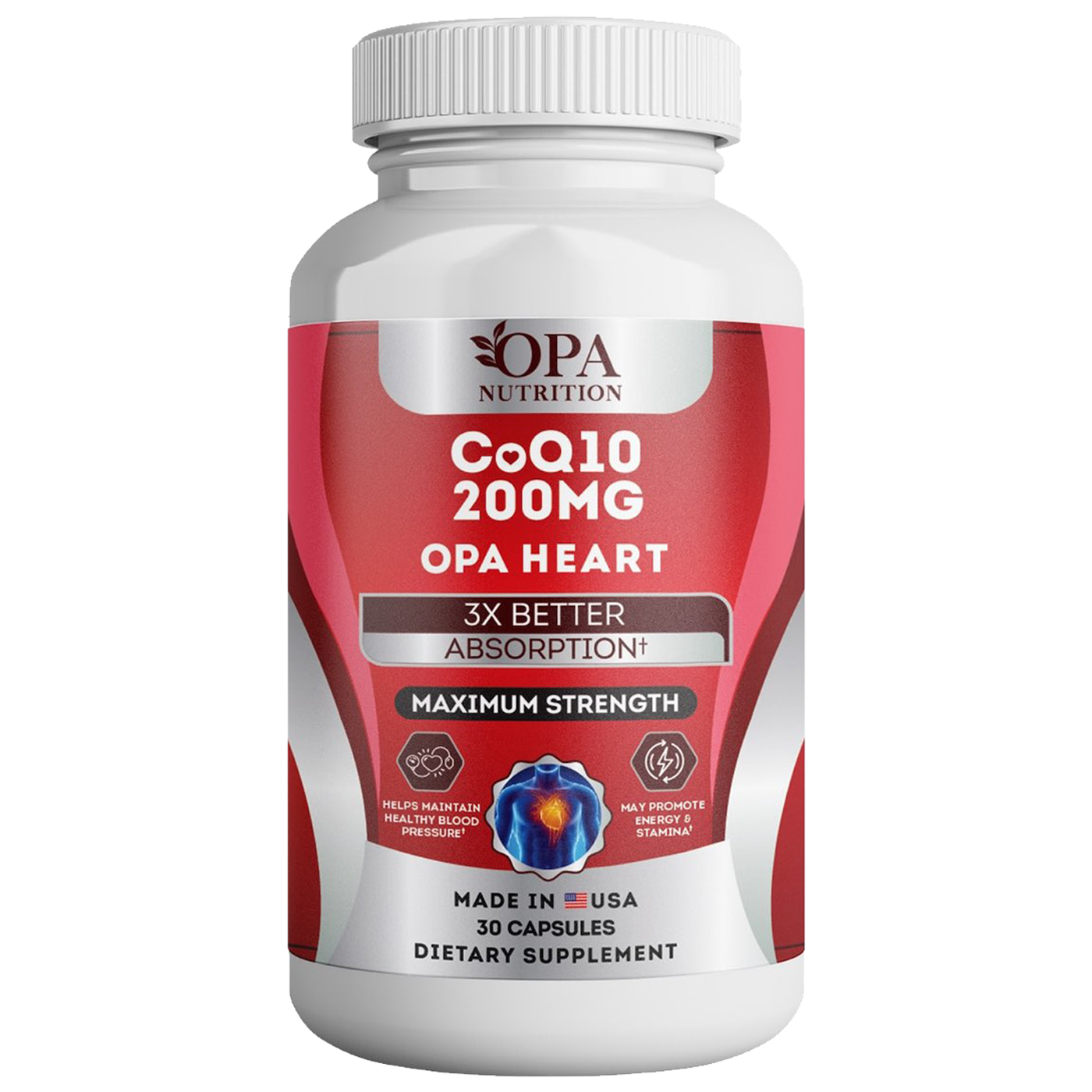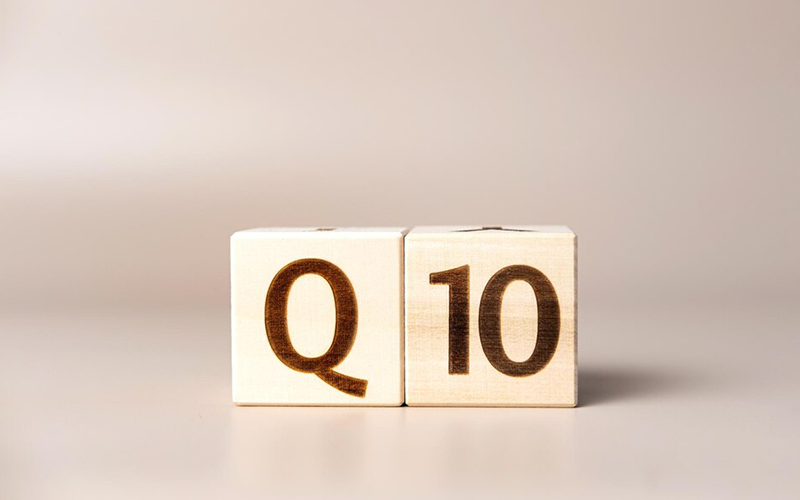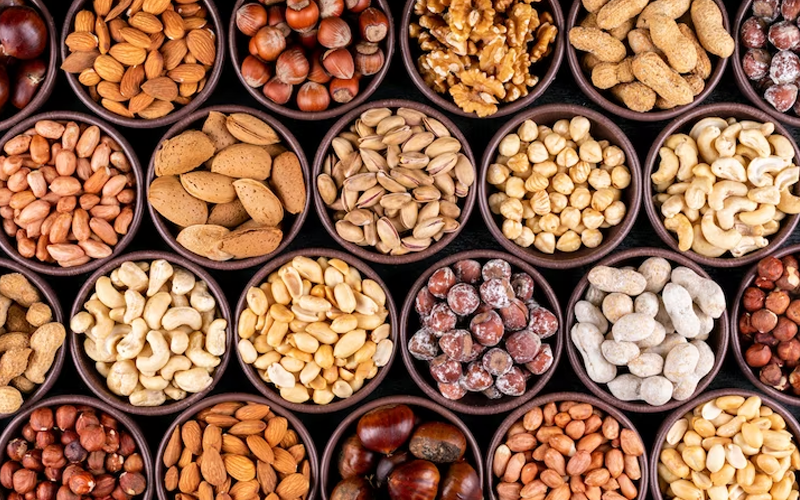Did you know that statins, the commonly prescribed medications for lowering high cholesterol in, have a surprising connection with CoQ10, a naturally occurring antioxidant? As intriguing as it may sound, this relationship has sparked a debate in the medical community about the potential benefits and risks of CoQ10 supplementation for statin users. Embark on a journey with us as we unveil the truth about CoQ10 and statins, discussing their interaction, the ongoing debate, and the possible impact on your health.
In this comprehensive guide, we will explore the mechanisms of action for both statins and CoQ10, the potential benefits and contradictions of CoQ10 supplementation for statin users, statin-induced side effects, and the importance of dosage and safety considerations when taking CoQ10 supplements. Additionally, we will provide tips for incorporating CoQ10-rich foods into your daily diet. So let’s dive in and uncover the mystery behind CoQ10 and statins!
Short Summary
This article explores the interaction between CoQ10 and statins, examining potential benefits of supplementation for those taking statins.
Research is ongoing on the effectiveness of CoQ10 in reducing muscle aches, improving heart health, and enhancing mitochondrial function in statin users.
Consult a healthcare provider to determine optimal dosage and consider natural sources such as organ meats & fatty fish when incorporating into one’s diet.

OPA Heart
The #1 CoQ10 for Heart Health
CoQ10 and Statins Interaction

Statins are prescription medications designed to lower cholesterol levels, particularly low-density lipoprotein (LDL), or “bad” cholesterol, in the bloodstream. However, it has been observed that taking statins can also reduce CoQ10 levels in the body. CoQ10, or coenzyme q10, is essential for energy production in cells and acts as an antioxidant, protecting cells from damage caused by free radicals.
Should You Take CoQ10 if You Take a Statin? - The potential benefits of CoQ10 supplementation for statin users have been a subject of debate in the medical community. Some studies suggest that CoQ10 supplementation may help reduce muscle pain and fatigue associated with statin use. However, other research has not demonstrated any notable advantages.
This article explores the mechanisms of action for statins and CoQ10, along with the ongoing discussion about CoQ10 supplementation.
How Statins Work
Statin drugs, also known as statin medications, are pharmaceuticals that function by inhibiting a key enzyme called HMG-CoA reductase, which is responsible for cholesterol production in the liver. By blocking this enzyme, statins effectively reduce cholesterol levels, including:
- low-density lipoprotein (LDL) cholesterol
- total cholesterol
- triglycerides
- very-low-density lipoprotein (VLDL) cholesterol
In the human body, human cells, including muscle cells, rely on substances transported through the bloodstream, which is crucial for maintaining overall health and avoiding conditions such as kidney and heart failure too.
Reducing cholesterol is vital for those at risk of cardiovascular diseases like atherosclerosis, where cholesterol buildup in the arteries could result in heart attacks or strokes. However, while statins are highly effective in reducing cholesterol levels, they can sometimes cause unwanted side effects such as muscle pain, which brings us to the next topic of systematic review: CoQ10’s role in the body.
CoQ10's Role in the Body
CoQ10 is a naturally occurring antioxidant that plays a vital role in energy production within cells, particularly during physical exercise. It also serves as an antioxidant, shielding cells from damage caused by free radicals. Interestingly, statin use can affect CoQ10 blood levels, potentially leading lead to depletion of this essential substance.
The “Living with Statins” study is currently assessing the effects of statins on various health outcomes in patients treated with these medications, including the occurrence of confirmed statin myopathy. The potential impact of CoQ10 depletion on muscle pain and other side effects associated with statin use is a primary focus of this research.
We will next explore the ongoing discussion about CoQ10 supplementation for individuals using statins.
The Debate on CoQ10 Supplementation for Statin Users

While some studies suggest that CoQ10 supplementation may help alleviate statin-induced side effects such as muscle pain, others have shown no significant benefits. This has led to a debate on the effectiveness of CoQ10 supplementation for statin users. To gain more insight into this controversy, we will explore the potential benefits and conflicting research regarding CoQ10 supplementation in statin users.
The LIFESTAT study, a randomized trial, aims to investigate the potential benefits of CoQ10 supplementation in reducing muscle breakdown and other side effects in statin users. Both participants and researchers in this study are blinded, which is important for studies that involve vigorous exercise or other interventions that could potentially influence the study results.
Potential Benefits
Some studies have suggested that CoQ10 supplementation may be beneficial in reducing muscle aches and improving heart health in statin users. The LIFESTAT study is specifically examining whether CoQ10 supplementation can:
- Boost muscle CoQ10 levels
- Enhance mitochondrial function in statin users
- Reduce the intensity of myalgia, a common symptom of statin myopathy, after CoQ10 supplementation.
The study includes individuals aged 40-70 years with a body mass index of 25-35 kg/m2, who are on primary prevention with simvastatin minimum 40 mg daily. Participants with certain medical histories like diabetes mellitus, arrhythmia, ischemic heart disease, or musculoskeletal disorders and mental disorders that impede comprehension are ineligible for the study. Moreover, individuals taking medications that interact with simvastatin or interfere with physical testing (e.g. -blockers) will also be excluded from recent study.
Contradictory Research
On the other hand, certain studies have concluded that CoQ10 supplementation does not produce a significant improvement in muscle pain or mitochondrial function in statin users. In fact, some research found no effects of oral CoQ10 supplementation or placebo on muscle CoQ10 levels or mitochondrial function.
Moreover, no correlation was observed between alterations in muscle CoQ10 levels and individual changes in intensity of myalgia. These conflicting findings further fuel the debate on the effectiveness of CoQ10 supplementation for statin users, highlighting the need for more research to ascertain its potential benefits and risks.
Statin-Induced Side Effects and CoQ10

Statins can cause muscle pain and weakness, which are among the most commonly reported side effects of these medications. CoQ10 has been suggested as a potential remedy for these issues, with some studies indicating that its depletion may be linked to a decrease in statin-induced muscle pain. However, the efficacy of CoQ10 supplements in ameliorating muscle pain resulting from statin use remains uncertain, and further research is required to validate their efficacy for this side effect.
In the following sections, we will delve deeper into the specific side effects of statin use, such as muscle pain, and explore the potential impact of CoQ10 supplementation on these issues.
Muscle Pain and Statin Use
Statin-induced muscle pain is a common side effect that can negatively impact patients’ quality of life. Some studies suggest that CoQ10 depletion may play a role in this issue. The LIFESTAT study, for instance, is investigating the potential benefits of CoQ10 supplementation in boosting muscle CoQ10 levels and enhancing mitochondrial function in statin users, as well as its ability to reduce the intensity of myalgia after supplementation.
However, the results of such studies have been inconclusive, with no definitive proof to support the notion that CoQ10 supplementation can effectively prevent muscle aches caused by statins. This lack of conclusive evidence highlights the need for more research on the possible benefits of CoQ10 supplementation for statin users experiencing muscle pain.
CoQ10's Effect on Muscle Tissue
While some research suggests that CoQ10 supplementation may help alleviate muscle pain in statin users, other studies have found no significant improvement. For example, one study reported no effects of oral CoQ10 supplementation on muscle CoQ10 levels or mitochondrial function.
Additionally, no correlation was observed between alterations in muscle CoQ10 levels and individual changes in intensity of myalgia. These conflicting findings underscore the need for more research to fully understand the potential impact of CoQ10 supplementation on muscle tissue in statin users.
CoQ10 Dosage and Safety Considerations

While considering CoQ10 supplementation, remember to be aware of the suggested dosage and possible side effects. Research is still ongoing to determine the most effective CoQ10 dosage for statin users.
Like any supplement, you should consult your healthcare provider before starting CoQ10 supplementation, particularly if you’re on other medications or have existing health conditions.
Recommended Dosage
The suggested dosage for CoQ10 supplementation typically ranges between 60 and 500 milligrams daily, with the maximum suggested daily dose being up to 1,200 milligrams. Still, it remains uncertain what the optimal CoQ10 dosage for statin users is, necessitating more research to establish the most effective dose.
In the LIFESTAT study, for example, participants were given two 200 mg CoQ10 capsules daily. Although this dosage was used in the study, it’s important to consult with your healthcare provider to determine the most appropriate dosage for your individual needs and circumstances.
Possible Interactions and Side Effects
CoQ10 could interact with some medications, like the anticoagulant warfarin and cancer treatment drugs like alkylating agents. If you’re taking any of these medications, it’s essential to discuss CoQ10 supplementation with your healthcare provider to prevent potential interactions.
Possible side effects of CoQ10 supplementation may include:
- Stomach upset
- Diarrhea
- Loss of appetite
- Elevated liver function tests (LFTs)
- Gastric distress
- Nausea
- Vomiting
While these side effects are generally mild and temporary, it’s important to be aware of them and to consult your healthcare provider if you experience any adverse reactions while taking CoQ10 supplements.
Natural Sources of CoQ10

Incorporating CoQ10-rich foods into your diet can help maintain healthy CoQ10 levels and provide an alternative or supplement to supplementation. Natural sources of CoQ10 include:
- Organ meats (e.g. liver and kidney)
- Fatty fish (e.g. salmon and trout)
- Nuts and seeds
- Spinach
- Broccoli
- Whole grains
Including more CoQ10-rich foods in your meals and snacks can support your body’s energy production and antioxidant defenses, which may lessen the need for CoQ10 supplementation. The upcoming sections will list CoQ10-rich foods and provide tips on how to incorporate these nutrient-rich foods into your daily diet.
Foods High in CoQ10
Some of the foods richest in CoQ10 include:
- Organ meats, such as beef liver and kidney
- Fatty fish like salmon and trout
- Nuts and seeds
- Whole grains
These nutrient-dense foods not only provide CoQ10, but also contain other essential vitamins, minerals, and healthy fats that support overall health.
In addition to these CoQ10-rich foods, other sources include meats (e.g. chicken, beef, and pork), and vegetables (e.g. spinach and broccoli). By incorporating a variety of these foods into your diet, you can help ensure that you’re getting adequate amounts of CoQ10 to support your body’s energy production and antioxidant defenses.
Tips for Incorporating CoQ10-Rich Foods
To boost your CoQ10 intake, consider integrating more CoQ10-rich foods into your meals and snacks. Here are some examples:
- Add organ meats to salads or sandwiches
- Utilize nuts and seeds as snacks
- Include fatty fish like salmon, mackerel, and sardines in your weekly meal rotation
Additionally, cooking with healthy fats, such as olive oil, can help your body absorb CoQ10 more effectively. By making an effort to include more CoQ10-rich foods in your diet, you can support your body’s energy production and antioxidant defenses, potentially reducing the need for CoQ10 supplementation.
Summary
In conclusion, the relationship between CoQ10 and statins is a fascinating yet complex topic. While some studies suggest that CoQ10 supplementation may help alleviate statin-induced side effects, such as muscle pain, others have shown no significant benefits. As a result, the debate on the effectiveness of CoQ10 supplementation for statin users continues, and more research is needed to fully understand its potential benefits and risks.
In the meantime, incorporating CoQ10-rich foods into your daily diet can help maintain healthy CoQ10 levels and provide an alternative to supplementation. By staying informed and discussing your options with your healthcare provider, you can make the best choices for your individual needs and circumstances, ultimately supporting your overall health and well-being.
Frequently Asked Questions
Given the potential link between low levels of CoQ10 and statin side effects, many doctors recommend taking CoQ10 supplements if you’re taking a statin.
CoQ10 appears to be safe and well tolerated, making it a potentially beneficial option to address any adverse effects from statin use.
For those taking statin drugs, the recommended dose of CoQ10 is 30 - 200 mg per day.
A study of people taking statins found that 100mg of CoQ10 daily for 30 days reduced muscle pain caused by side effects of statins in 75% of patients.
It is generally accepted that CoQ10 can be taken with atorvastatin.
However, it is important to note that regular CoQ10 is fat-soluble, so it should be taken with foods containing fat for optimal absorption.
Certain drugs that are used to lower cholesterol, blood pressure or blood sugar levels may interact with CoQ10, potentially decreasing its effects.
Additionally, warfarin and insulin may be affected by CoQ10, as it could increase the risk of blood clots in those taking anticoagulants.
CoQ10 supplementation may be associated with stomach upset, diarrhea, loss of appetite, elevated LFTs, gastric distress, nausea, and vomiting.



